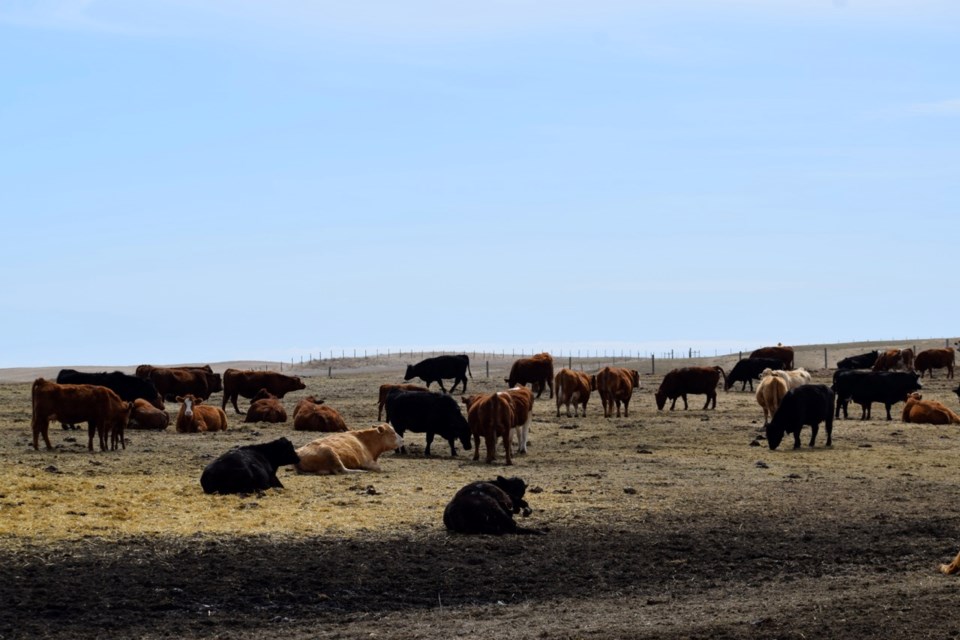ESTEVAN - There is no easy solution, and that's scary.
This was the conclusion I made after about an hour-long conversation with auntie about the local livestock producers and the situation they find themselves in this year.
As a person that lives in a big city on a different continent, she didn't know much about the problems that food producers all over the world are dealing with now. Of course, she heard on the news about massive droughts and terrible floods, but as a consumer, she didn't put much thought into it rather than being worried for people struggling in affected regions.
So as an example, I tried to describe to her the situation we are witnessing here in living colour. I told her about clouds of grasshoppers that shoot up from under your feet when you walk around the field these days. I told her about cracks in the dirt that were already terrifying last winter. And I told her about ranchers in the area who pick 20 bales from fields where they used to get 120.
She listened closely, and being a practical person, right away suggested a solution.
"Then cows will need to stay out in the pastures as long as they can and then a bit longer," she said.
It would be such an easy way out, wouldn't it? But with a lack of moisture, pastures look like we are in the midst of a Western movie. In many spots, rains didn't come in time, so there is no regrow and probably there won't be any this year. And cows eat a lot. I mean a lot.
"How about grain? Can you feed it to cows?" – she asked.
You definitely can. But first, not all ranchers grow grain for feed. Besides, the droughts that have been torturing the planet here and there made all kinds of agricultural products more valuable, thus cutting an already narrow financial wiggle room ranchers have to find solutions to keep their business going even narrower.
"Well, then you'd need to buy some feed," auntie suggested.
But everyone is in the same boat in this sense. Some producers in the area had quite a bit of carryover left from previous seasons, which will be a game-changer this year. But not all of them had extras. Those who saved some bales from before probably feel a bit better now, but I don't think anyone around southeast Saskatchewan will be selling much until they know for sure that they have enough to feed their herds, which usually happens towards the end of the season. Outside of that, shipping costs probably again will ruin it for the farmers.
"So what do you do?" she asked.
And to that, I didn't really have an answer. Yes, there are some provincial and federal support programs being rolled out. Hopefully, they'll provide enough funding so that the producers could keep their heads above … dusty fields, I guess.
But what scared me more than the saddest situation I've seen in the area for as long as I've been around, is the fact that we are not the only producers facing serious problems. Droughts and natural disasters drastically affected the key agricultural regions this year. Cattle producers are hurting the most in our area so far, but around the world problems spread over to grain growers in Argentina, Russia, and Western Canada and the U.S.; vegetable farms in California; and pork producers in China. Madagascar is already experiencing an emergency due to a significant lack of food. And if these tendencies pertain, the rest of the world will need to hunker down pretty soon.
We may skip buying new gadgets or vehicles for a year if we have to. I understand that it will still create problems down the lines of the supply chains, employing thousands of people. Yet, that's still something that could be put on pause. But we can't really stop eating for a year or two.
Of course, our consumption habits can be modified to a point even when it comes to eating, but there is not that much wiggle room in this area.
The lack of food and water may turn into a war pretty fast. And experts warn that the problem will only intensify if no urgent action is taken to help modify the agricultural industry and to change the global consumption patterns.





